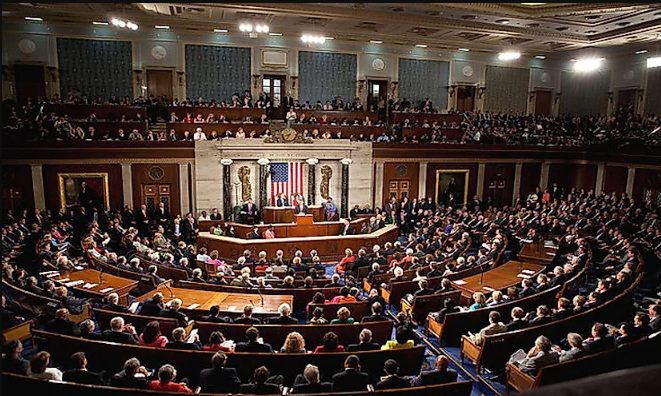Clean Shipping Act of 2022, the first stand-alone legislation to zero out pollution from all ocean shipping companies that do business with the United States, has been introduced to the US Congress.
The bill was introduced by congressman Alan Lowenthal, who represents the Port of Long Beach, and co-sponsor congresswoman Nanette Barragán on 12 July.
Clean Shipping Act of 2022, modelled off of the European Union’s Fit for 55 regulatory framework for shipping, aims to clean up the shipping industry, protect the health of port communities, address environmental injustice and provide solutions to the climate crisis.
It is expected that if both the US and the EU act together to regulate ship pollution together and in alignment, over one-third of all global ships would be covered under a unified regulatory regime.
“We no longer have the luxury of waiting to act. We must face the fact that we are at a tipping point in the climate crisis; we must move beyond fossil fuels, and that includes air, land and sea transportation sources. No emissions sources can go overlooked,” Lowenthal said.
“This legislation will set clear standards, and drive the investment and innovation we need to transition to a zero-carbon future. It will clean up our ports once and for all, with a straightforward nationwide policy. This bill is the right policy for the future of our planet, for the health of our communities, and ultimately for the resiliency of goods movement.”
Barragán said, “The Clean Shipping Act of 2022 is bold legislation that will make the United States a global climate leader in addressing pollution from the shipping industry and protect the health of port communities in Los Angeles and around the country. This is a big step forward for climate-smart ports and a clean energy future for every community. Proud to support this legislation as an original co-sponsor. Thank you to Congressman Lowenthal for your leadership and partnership to clean up the maritime industry and advance the greening of our ports.”
Reports indicate that at almost 1 billion tons of climate pollution per year, the shipping industry emits roughly the same as all the coal plants in the US combined.
It is estimated that the sector could account for 17-18% of all global emissions by 2050 if corrective policies are not put in place.
The International Maritime Organisation (IMO), the United Nations agency that regulates shipping, has set a goal of cutting shipping emissions at least 50% below 2008 levels by 2050; however, the IMO’s strategy is not aligned with achieving the goal of the Paris Agreement to limit the global average temperature increase to 1.5 °C to avoid the worst impacts of climate change.
